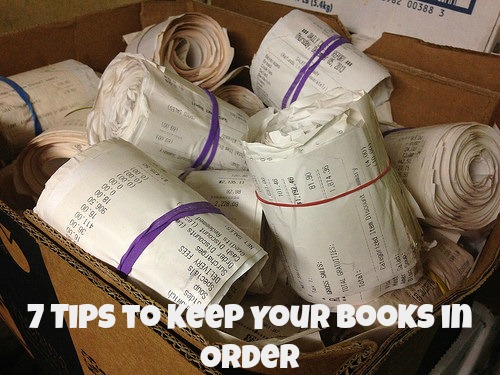
When you own a small business, it can be tempting to leave the back office operations for another time. You may get down to bookkeeping basics when it is time to reconcile your accounts at the end of the month, but if you are waiting to keep your finances straight don’t be surprised if they zig instead of zag.
Rather than risk issues with your investors and financiers — or worse, the taxman — protect your small business by keeping your books in order. Here are some easy ways to take care of business.
Personal and Business Should Always be Separate
The worst mistake you can make as a small business owner is to mix your personal expenses with your business ones. Don’t do it. While you can always record the mix as a financial transaction for which you pay the company back, most people skip this step, especially for small items like buying a candy bar at Staples. It sounds small but it robs your business, which is a separate entity from you, from revenue and it puts you at risk for failing an audit.
Keep Your Receipts
One of the cardinal rules for keeping the books of your small business in order is to keep your receipts — even if you pay with a credit card. Credit card statements may help you keep personal records but when it comes to qualifying business expenses, you need the actual receipt for it to count. Because audits can happen anytime and require several years worth of receipts, make sure to keep all evidence of your expenditures for at least seven years.
Log Receipts Numerically
If you go to the same places often, it can be difficult to remember which transaction is for what — and even more tricky when trying to cost projects. Instead of guessing, log your receipts numerically and write the assigned number on the actual receipt before scanning or storing in addition to a brief description about the reason for the expense.
Keep Detailed Records
Your records also need to be detailed. On each receipt, write on it what the expense was for and, if relevant, to which client or project that expense belongs. A few years from now it may be hard to remember, and thus justify, why you paid for a $500 dinner as a business expense.
Accounting Software
One easy way to do this is to use an online accounting software like Sage One. This way, your banking records are integrated into the system and you can make notes about your expenses as they happen. It also makes it easy to track costs related to each project and calculate profitability at the stroke of a button so you can make more informed strategic decisions.
Include All Your Costs
You should also take care to record all your costs. This includes every amount you spend towards your business as well as what you spend within it. Just like you don’t want to buy things for the company with your personal money, you don’t want to miss recording your costs — they can really add up. For instance, when it comes to your employees (including yourself if you get a salary), you need to include the cost of wages as well as benefits, taxes, and overtime.
Remember to Pay Yourself
When you keep careful books, it is easy to see how much you are spending, but it is also easier to see how much you are owed. This way you can make sure you are collecting payments on time and assessing penalties as necessary. Set reminders if you need to or set regular times to review payments owed. You can then use that information to change credit terms, offer payment incentives, and establish company-wide credit policies.
The Bottom Line
Your books are only as good as they are accurate, so make sure that you are doing all these things in a timely fashion. Ideally, enter income and expenses as soon as they are received so that your books are always up to date and you can skip the last-minute rush of trying to get your quarterly taxes in on time.

I used to work for a small company before and my employer made sure that they always kept their receipt always and I also recorded it on the excel file just for the future use.